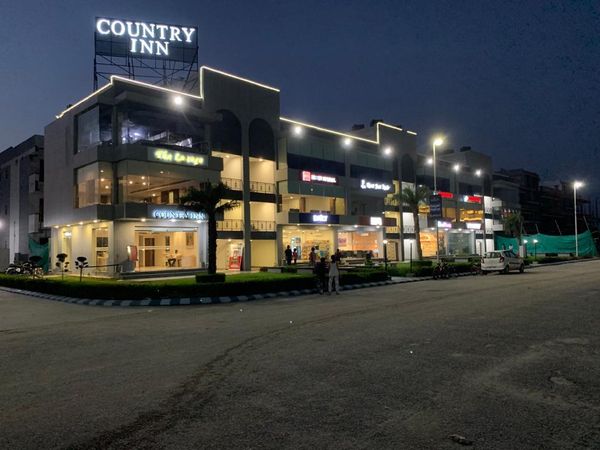Making Preventive Care Accessible to Everyone
 Mark Wood
04 Sep, 2025
9 mins read
4
Mark Wood
04 Sep, 2025
9 mins read
4

In today’s fast-paced world, healthcare often takes a backseat until a major illness or emergency arises. Preventive care, however, is increasingly recognized as a vital component of maintaining long-term health. Despite its importance, many individuals still face significant barriers to accessing preventive services. From financial constraints and geographic limitations to time shortages and lack of awareness, these challenges prevent countless people from receiving the health checks they need. Breaking these barriers is not just a medical necessity—it’s a societal imperative.
The Importance of Preventive Care
Preventive care focuses on the early detection and prevention of diseases before they become severe. Routine health screenings, vaccinations, lifestyle counseling, and diagnostic tests are all part of a robust preventive care plan. The benefits are manifold: early detection of conditions such as diabetes, hypertension, or cancer can dramatically improve treatment outcomes and quality of life. Moreover, preventive care often reduces long-term healthcare costs by avoiding expensive emergency treatments and hospitalizations.
Despite these clear advantages, preventive care remains underutilized. Many individuals postpone regular checkups due to perceived inconvenience or fear of discovering health issues. Some may not even know which screenings are appropriate for their age, gender, or risk profile. Addressing these gaps requires innovative approaches that make preventive services more accessible, affordable, and user-friendly.
Barriers to Accessing Preventive Care
Geographic Limitations
For individuals living in rural or remote areas, access to healthcare facilities can be a significant challenge. Traveling long distances for routine screenings can be both time-consuming and expensive. The lack of specialized medical centers in smaller towns further exacerbates this issue, often forcing residents to forgo essential preventive measures.
Financial Constraints
Healthcare affordability is another major hurdle. Many people avoid regular checkups due to the costs involved, particularly when insurance coverage is limited or non-existent. This financial barrier disproportionately affects lower-income populations, leading to health disparities that can persist across generations.
Time Constraints
In today’s demanding work culture, finding time for preventive care can be difficult. Long waiting times, limited clinic hours, and the need to take time off from work make routine health checks inconvenient for many. As a result, individuals often prioritize immediate obligations over long-term health maintenance.
Lack of Awareness
Even when resources are available, a lack of awareness can prevent people from seeking preventive care. Many are unaware of recommended screenings, risk factors for certain diseases, or the benefits of early detection. This informational gap highlights the need for public education and outreach programs that emphasize the importance of preventive health.
Innovations Making Preventive Care More Accessible
Fortunately, healthcare providers and technology innovators are working to dismantle these barriers through creative solutions.
Telemedicine and Virtual Consultations
Telemedicine has emerged as a powerful tool for making healthcare more accessible. Patients can now consult doctors remotely, receive medical advice, and even obtain prescriptions without stepping into a clinic. This technology is particularly beneficial for those with mobility issues or those residing in remote locations, providing expert guidance at the convenience of home.
Mobile Health Clinics
Mobile health clinics bring medical services directly to communities. Equipped with diagnostic tools and staffed by qualified healthcare professionals, these clinics offer screenings, vaccinations, and consultations in underserved areas. Mobile clinics not only reduce geographic barriers but also create opportunities for community engagement and health education.
Home-Based Testing and Screening
One of the most significant advancements in preventive care is the availability of home-based health services. People can now undergo essential screenings, including blood tests, blood pressure monitoring, and even imaging, without leaving their homes. Services such as a full body checkup at home allow individuals to receive comprehensive health assessments conveniently and safely. This model caters to busy professionals, seniors, and anyone who may face difficulties visiting a medical facility.
Health Education and Awareness Campaigns
Public health initiatives are crucial in bridging the knowledge gap. Awareness campaigns, workshops, and community programs help individuals understand the importance of preventive care, the recommended screenings for different age groups, and how lifestyle choices affect overall health. Education empowers individuals to take proactive steps in maintaining their wellbeing.
The Role of Employers in Preventive Care
Employers can also play a pivotal role in making preventive care accessible. Workplace wellness programs, health screenings on-site, and incentives for regular checkups encourage employees to prioritize their health. Organizations that invest in employee health not only improve workforce productivity but also reduce long-term healthcare costs associated with preventable illnesses.
Insurance and Policy Support
Government policies and insurance schemes are essential for ensuring equitable access to preventive care. Coverage for routine screenings, vaccinations, and preventive consultations can significantly reduce financial barriers. Public-private partnerships can further extend these services to marginalized populations, ensuring that preventive care is not a privilege but a right.
Breaking the Stigma Around Health Checkups
Another important aspect of accessibility is addressing the psychological barriers associated with health screenings. Fear of medical procedures, anxiety about test results, and cultural stigma often prevent individuals from seeking preventive care. Normalizing regular health checkups through education, positive reinforcement, and supportive healthcare environments can help overcome these psychological obstacles.
The Future of Preventive Care
The future of preventive healthcare lies in personalization, convenience, and technology-driven solutions. Artificial intelligence, wearable devices, and predictive analytics are enabling more precise risk assessments and early intervention strategies. As these technologies become more widespread, preventive care will shift from a reactive model to a proactive, patient-centered approach. Accessibility will no longer be limited by geography, time, or financial constraints.
Home-based services, telemedicine, and digital health platforms represent the vanguard of this transformation. They empower individuals to take charge of their health, promote early detection of diseases, and reduce the burden on healthcare systems. The integration of these services into everyday life ensures that preventive care is not an occasional luxury but a routine part of wellness management.
Conclusion
Making preventive care accessible to everyone is both a medical necessity and a moral imperative. Overcoming the barriers of geography, cost, time, and awareness requires a multi-faceted approach, involving technological innovation, policy support, and cultural change. Services like full body checkup at home exemplify how healthcare can adapt to modern lifestyles, offering convenience, safety, and comprehensive assessments without compromising quality.
By prioritizing accessibility, education, and proactive health management, we can create a society where preventive care is no longer an optional extra but an integral part of daily life. When preventive health services are available, affordable, and easy to access, the result is a healthier population, lower healthcare costs, and a more resilient society ready to face the challenges of tomorrow.
Written By:
Mark Wood



Hotels at your convenience
Now choose your stay according to your preference. From finding a place for your dream destination or a mere weekend getaway to business accommodations or brief stay, we have got you covered. Explore hotels as per your mood.





